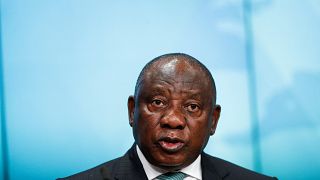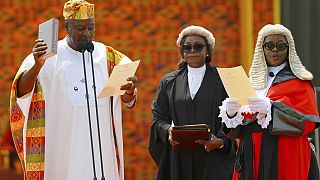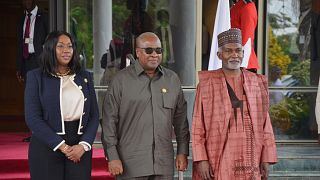Ghana
Ghana is the latest African country to ease its Covid-19 rules.
In his 28th Covi-19 address, President President Akufo-Addo announced an update on the measures taken to limit the spread of the virus.
Citing a "review premised on the background of rapidly declining infections, the relative success of the vaccination campaign ... and the increased capacity in the public and private health sectors", the leader presented measures set to take effect on Monday, March 28.
2 years after President Akufo-Addo closed all borders, he announced the opening of sea and land borders vowing the economy would soon rebound.
Highly anticipated move
The reopening of the borders was expected by many Ghanaians, who depend on cross-border trade with Togo, Ivory Coast and Burkina Faso.
"It has been very difficult for me," Beatrice Konadu, a trader who sells cosmetics and shoes to her Togolese and Burkinabe neighbors, told AFP.
"The president's announcement is great news, but it was long overdue," she added.
Ghana's economy is struggling to recover from the impact of the coronavirus pandemic, and to bear the burden of its public debt (about 80% of its GDP).
The authorities are also worried about the consequences of the Russian invasion of Ukraine on the global economy and its repercussions in Ghana.
For several months, Ghanaians have been demonstrating in the streets to denounce their economic difficulties, particularly the ever-increasing cost of living.
Covid-19 restrictions lifted
All in-person activities such as those taking place in private parties, churches, mosques, cinemas are to resume at full capacity as long as the audience are fully vaccinated.
Outdoor functions at sporting events, entertainment spots rallies and funerals may also resume at full capacity as long as those taking part are fully vaccinated.
Fully vaccinated travellers to Ghana will not have to take tests when they leave for the West African country nor will they have to take a test upon arrival in Ghana. Those who are not fully vaccinated be them citizens or foreigners, still need to provide a negative PCR test of not more than 48 hours and will need to udergo an antigen test upon arrival.
The wearing of facemasks is no longer mandatory.
Ghana has so far vaccinated 13 million people with a single dose and five million Ghanaians - 16% of the population - have been fully vaccinated, according to the Ghana Health Service.












02:20
Descendants of enslaved Africans find connection in Ghana
01:54
"Great economic potential in Africa": five African leaders have lunch with Trump
Go to video
U.S. slashes visa duration for some African nationals amid policy shift
01:03
Russia becomes first country to recognise Afghanistan's Taliban government
Go to video
What to know about the COVID variant that may cause 'razor blade' sore throats
Go to video
Evacuations begin: African citizens caught in Israel-Iran crossfire